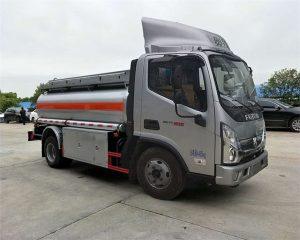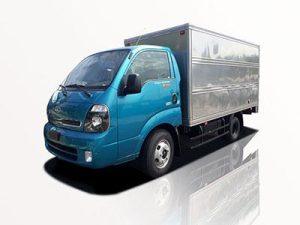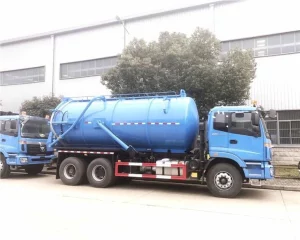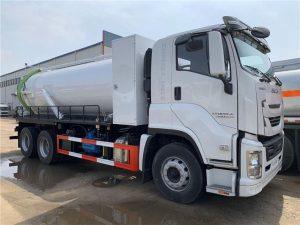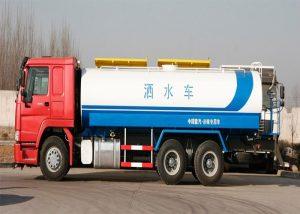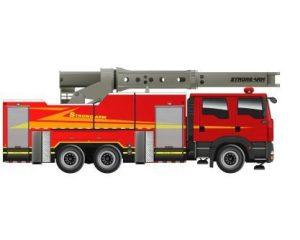Monday to Saturday - 8:00 -17:30
Truck Fuel Delivery: A Comprehensive Guide to Efficient Fuel Solutions
In today’s fast-paced world, businesses increasingly rely on efficient fuel delivery services to keep their operations running smoothly. Truck fuel delivery, a crucial service in various industries, ensures that vehicles and machinery are fueled up on time, reducing downtime and enhancing productivity. In this article, we will delve into the intricacies of truck fuel delivery, its importance, types of services, benefits, industry challenges, and much more.
1. Understanding Truck Fuel Delivery
Truck fuel delivery involves transporting fuel directly to various locations—such as construction sites, farms, and businesses—using specialized fuel delivery trucks. This process eliminates the need for businesses to travel to fuel stations, saving them time and resources.
1.1 What Types of Fuels are Delivered?
Truck fuel delivery can encompass various types of fuel, including:
- Gasoline
- Diesel
- Kerosene
- Biofuels
- Propane
1.2 Key Industries Utilizing Truck Fuel Delivery
Several industries benefit from truck fuel delivery services, including:
- Construction
- Agriculture
- Transportation and logistics
- Mining
- Emergency services
2. Benefits of Truck Fuel Delivery Services
Truck fuel delivery offers numerous advantages for businesses. Below are the key benefits:
2.1 Convenience and Time Savings
Fuel delivery services eliminate the need for employees to leave the job site to refuel, allowing them to focus on essential tasks and increasing overall productivity.
2.2 Cost-Effectiveness
Bulk fuel delivery often comes at a lower price than retail fuel, allowing businesses to save money in the long run.
2.3 Increased Safety
Having fuel delivered reduces the risk of accidents associated with transporting fuel in personal vehicles or on company trucks.
3. Types of Truck Fuel Delivery Services
Understanding the different types of truck fuel delivery services is essential for choosing the right one for your business.
3.1 On-Demand Fuel Delivery
This service allows businesses to order fuel as needed, ensuring they receive fuel in a timely manner without the hassle of stockpiling.
3.2 Scheduled Fuel Delivery
Scheduled deliveries provide businesses with a set delivery schedule, ensuring that they never run out of fuel. This service is ideal for organizations with consistent fuel needs.
3.3 Emergency Fuel Delivery
In critical situations, emergency fuel delivery services come to the rescue, providing fuel to businesses experiencing unexpected outages.
4. How to Choose a Truck Fuel Delivery Service
Selecting the right truck fuel delivery service involves several considerations to ensure that your fuel needs are met effectively.
4.1 Evaluate Provider Experience
Consider how long the fuel delivery service has been in business and its reputation in the industry. Look for testimonials and reviews from past customers.
4.2 Check Fuel Quality
Ensure that the service provider delivers high-quality fuel that meets industry standards. Poor fuel quality can harm engines and machinery.
4.3 Delivery Frequency and Flexibility
Assess the delivery schedules offered by the provider. Ensure they can accommodate your business’s fuel needs—whether you require on-demand, scheduled, or emergency delivery.
4.4 Pricing and Contracts
Request quotes from multiple providers to compare pricing and review any contracts carefully to understand the terms involved.
5. The Fuel Delivery Process
Understanding the fuel delivery process can help you streamline your operations effectively.
5.1 Placing an Order
Most services allow businesses to place orders online, by phone, or through mobile apps, depending on the provider.
5.2 Delivery Scheduling
Once the order is placed, the provider will typically confirm the delivery date and time. It’s essential to keep communication open to make any necessary adjustments.
5.3 Fuel Delivery
Fuel delivery vehicles are equipped with specialized equipment for safe fuel transportation. Upon arrival, the driver follows standard safety protocols to ensure smooth delivery.
5.4 Payment and Invoicing
After the delivery, the payment method agreed upon—whether a credit account, cash, or electronic transfer—will be processed and documented through an invoice.
6. Safety Measures and Regulations
Safety is paramount in the fuel delivery industry, and various regulations govern how businesses operate.
6.1 Compliance with DOT Regulations
The Department of Transportation (DOT) has regulations concerning the transportation of hazardous materials, including fuel. Ensure the provider complies with these regulations to avoid penalties.
6.2 Safety Training for Drivers
Proper training for fuel delivery drivers is crucial. They should understand safety protocols and emergency response plans in the event of spills or accidents.
6.3 Equipment Safety Standards
Trucks and tanks used for fuel delivery must meet rigorous safety standards to prevent leaks and spills. Providers should conduct regular maintenance checks to ensure compliance.
7. Challenges in the Truck Fuel Delivery Industry
Like any industry, truck fuel delivery faces specific challenges that can impact service. Understanding these can help businesses be better prepared.
7.1 Fluctuating Fuel Prices
Fuel prices can be volatile, affecting delivery pricing and budgets. Businesses should monitor market trends to adjust budgets accordingly.
7.2 Technological Advancements
Staying updated with the latest technology in fuel delivery—like GPS tracking and automated dispatch systems—can improve efficiency but may require investment and training.
7.3 Environmental Regulations
Stricter environmental regulations may impact fuel types and delivery methods. Companies need to stay informed and adapt to changes in legislation.
8. Future Trends in Truck Fuel Delivery
As the industry evolves, several trends may shape the future of truck fuel delivery.
8.1 Adoption of Alternative Fuels
With growing environmental concerns, businesses may increasingly turn to alternative fuels, like biodiesel or electric vehicles, prompting fuel delivery services to adapt.
8.2 Digital Transformation
Many companies are investing in technology to enhance operations. Online ordering systems, data analytics, and mobile apps are becoming standard in the industry.
8.3 Sustainable Practices
As sustainability becomes a priority, companies may seek fuel delivery services that incorporate eco-friendly practices, such as optimizing fuel routes to reduce emissions.
9. Practical Tips for Managing Fuel Needs
To effectively manage your fuel needs and work with a delivery service, consider the following tips:
9.1 Track Fuel Usage
Monitor your fuel usage regularly to understand consumption patterns, which can help schedule deliveries more accurately.
9.2 Maintain Equipment
Regular maintenance of vehicles and machinery ensures better fuel efficiency, reducing overall fuel costs over time.
9.3 Develop a Relationship with Your Supplier
Building a strong relationship with your fuel provider can lead to better service and potential cost savings, as they may offer loyalty programs or discounts.
10. FAQs About Truck Fuel Delivery
10.1 What should I look for in a truck fuel delivery service?
Consider factors like experience, fuel quality, service flexibility, pricing, and safety standards before choosing a provider.
10.2 Can I schedule fuel deliveries for weekends or holidays?
Many providers offer flexible scheduling, including weekends and holidays. Confirm with your chosen service for their specific availability.
10.3 How can I ensure timely fuel delivery?
Place your orders in advance and keep your provider informed about any changes in your fuel consumption patterns to ensure timely delivery.
10.4 What safety measures should I take when fueling?
Always follow guidelines provided by the fuel delivery service, avoid smoking near fuel, and ensure proper containment measures for any spills.
10.5 What happens if my fuel delivery is late?
If your delivery is late, contact your provider to get updates or potential solutions. Having a backup plan for urgent situations is also advisable.
10.6 Is there a minimum order quantity for fuel delivery?
Many providers have minimum order quantities, especially for bulk fuel delivery. Check with your service provider for specific requirements.



